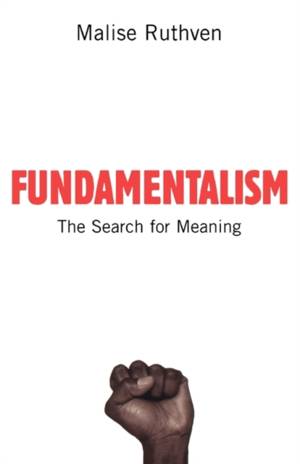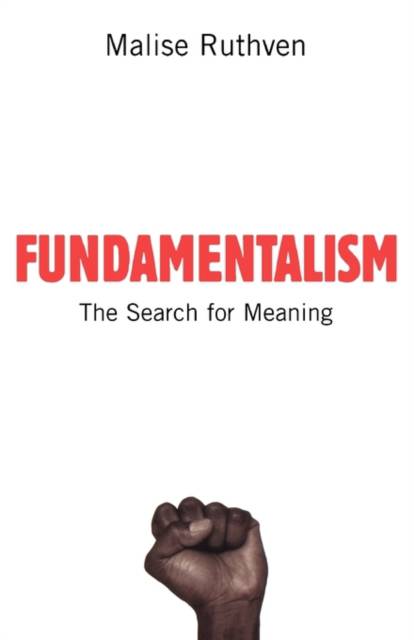
- Afhalen na 1 uur in een winkel met voorraad
- Gratis thuislevering in België vanaf € 30
- Ruim aanbod met 7 miljoen producten
- Afhalen na 1 uur in een winkel met voorraad
- Gratis thuislevering in België vanaf € 30
- Ruim aanbod met 7 miljoen producten
Zoeken
€ 33,95
+ 67 punten
Uitvoering
Omschrijving
Since the end of the Cold War, fundamentalism has been seen as the major threat to world peace, a conclusion that was burned into our consciousness on September 11th and that is reinforced almost every day in the Middle East. But what exactly is fundamentalism?
Here is the first book to explore the real nature of secular and religious fundamentalism worldwide, highlighting the many different forms fundamentalism can take. Examining Christian, Islamic, Jewish, Buddhist, and Hindu sects, Malise Ruthven offers a sweeping look at this phenomenon, examining its historical, social, religious, political and ideological backgrounds and providing a critical view of the burgeoning literature on this highly diverse set of movements. Fundamentalism, he concludes, is a problematic term that defies easy definitions. Coined by American Protestant evangelicals in the 1920s, the word's meaning has expanded to include radical conservatives and ideological purists in many spheres of activity, not all of them religious. Fundamentalism embraces Islamic radicals in the Muslim world as well as the militant Israeli settlers who oppose them. It has been used to describe Sikh, Hindu and even Buddhist nationalists who seek to justify their political agendas by reference to divine edicts or religious tradition. Ruthven agrees that there are some "family resemblances" between different fundamentalist movements, especially over concerns of national identity and gender, but he ultimately questions its usefulness as a term.
One of the world's leading commentators on Islam, Malise Ruthven writes with a clarity and directness that never fails to engage the reader. In this superb volume, he guides us through what is clearly a complex topic, but one that is vitally important in the modern world.
Here is the first book to explore the real nature of secular and religious fundamentalism worldwide, highlighting the many different forms fundamentalism can take. Examining Christian, Islamic, Jewish, Buddhist, and Hindu sects, Malise Ruthven offers a sweeping look at this phenomenon, examining its historical, social, religious, political and ideological backgrounds and providing a critical view of the burgeoning literature on this highly diverse set of movements. Fundamentalism, he concludes, is a problematic term that defies easy definitions. Coined by American Protestant evangelicals in the 1920s, the word's meaning has expanded to include radical conservatives and ideological purists in many spheres of activity, not all of them religious. Fundamentalism embraces Islamic radicals in the Muslim world as well as the militant Israeli settlers who oppose them. It has been used to describe Sikh, Hindu and even Buddhist nationalists who seek to justify their political agendas by reference to divine edicts or religious tradition. Ruthven agrees that there are some "family resemblances" between different fundamentalist movements, especially over concerns of national identity and gender, but he ultimately questions its usefulness as a term.
One of the world's leading commentators on Islam, Malise Ruthven writes with a clarity and directness that never fails to engage the reader. In this superb volume, he guides us through what is clearly a complex topic, but one that is vitally important in the modern world.
Specificaties
Betrokkenen
- Auteur(s):
- Uitgeverij:
Inhoud
- Aantal bladzijden:
- 260
- Taal:
- Engels
Eigenschappen
- Productcode (EAN):
- 9780192806062
- Verschijningsdatum:
- 2/06/2005
- Uitvoering:
- Paperback
- Formaat:
- Trade paperback (VS)
- Afmetingen:
- 142 mm x 200 mm
- Gewicht:
- 204 g

Alleen bij Standaard Boekhandel
+ 67 punten op je klantenkaart van Standaard Boekhandel
Beoordelingen
We publiceren alleen reviews die voldoen aan de voorwaarden voor reviews. Bekijk onze voorwaarden voor reviews.











